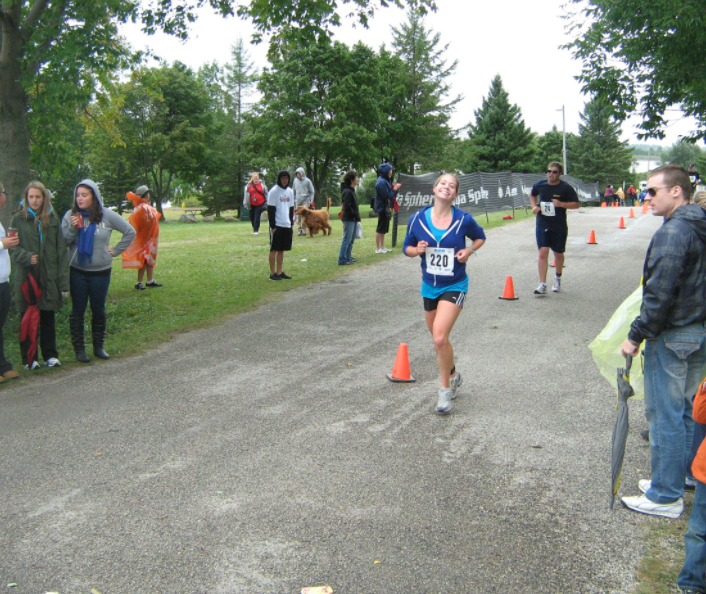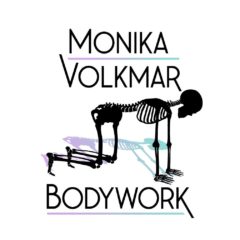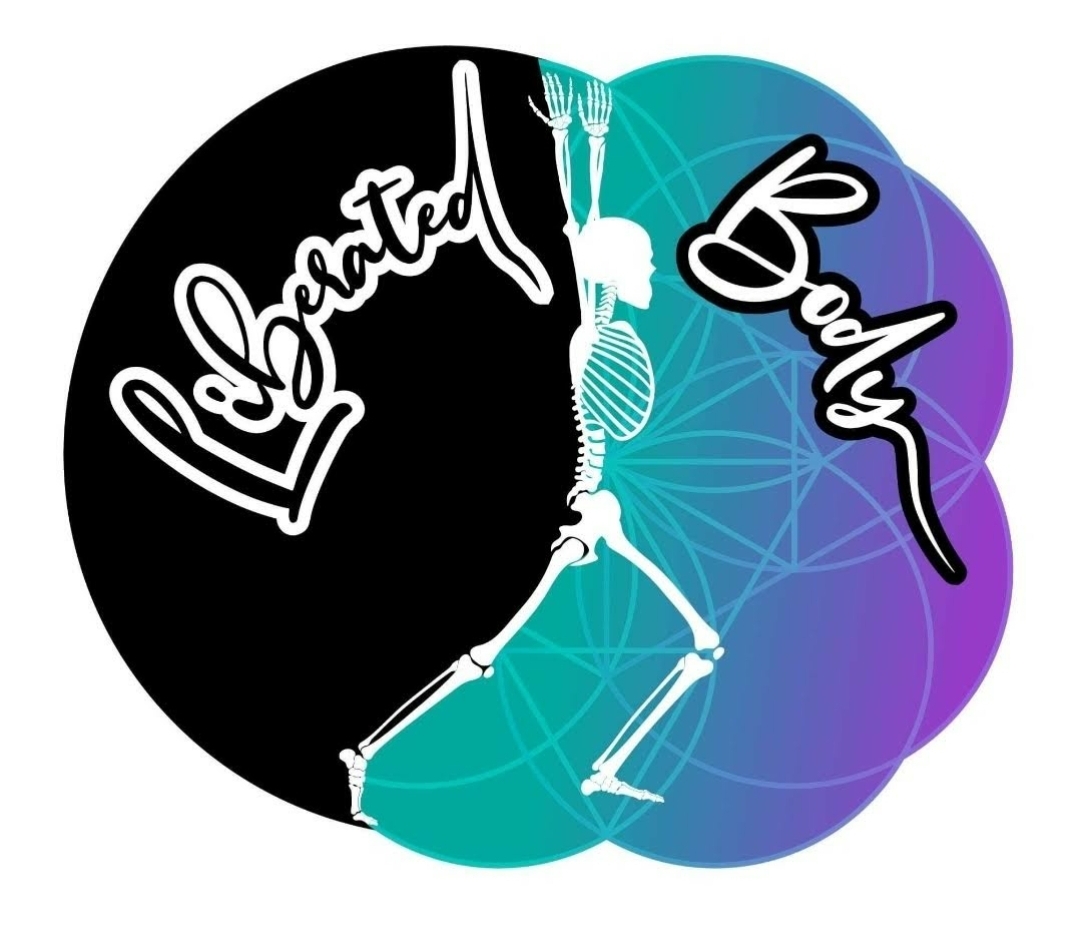When I was in my late teens/early 20s I started “exercising” and decided it was the cure for all my body’s (and life’s) problems.
I believed I was too fat (I wasn’t), and this major flaw needed correcting. In my narrow world view (inspired by the dance world) thin people were happier, more successful, and more popular: HSP.
So I created a problem (fatness) that didn’t need fixing (losing weight), and it felt very productive.
But I was unable to ever attain a size small enough that felt closer to HSP.
Where do you go after size 0? 00? 000? How many zeros does happiness have (and I suppose one could say the same about money…)? Every pound lost only led to disappointment that I wasn’t any more happier, succesfful, or popular than before.
My existence had become little more than the correction of my body’s size. My fulfillment was reduced to a hypothetical number. If I can control that number, I can control my life. If I can fix my body, I can fix my life.
As I already wrote about in this post, I’d developed a problem with eating (that is, not doing enough of it), which I can see now as a result of the subtle bullying I was exposed to in my dance training. However, deep down in my bones, I knew there would be terrible long term consequences to my extreme eating restrictions, like, actually dying of starvation. That realization smartened me up enough to change. Sort of…
However, like many eating disordered individuals, I cleverly reasoned that, at one end of the spectrum, if less calories IN was a solution to fatness, more calories OUT was another viable solution at the other extreme. So I turned my strategy 180 degrees: I decided to start using exercise to burn calories. HSP would be mine.
Then, to my dopamine-saturated (or deprived?) brain’s delight, I realized that exercise had an additional benefit starvation did not: I could present an image that the world would accept as “healthy”. I nearly convinced myself of it, too.
Addicted to control
Through exercise, I could control my body. Through my body, I could control peoples’ perception of me.
Jogging was my natural entry point for exercise: Low cost, and you can do it anywhere (even with no shoes, if you’re a little crazy). I adopted the noble persona of “jogger”, and this became my primary method to make myself suffer for my sins of fatness under the clever guise of health.
And people believed it, too. “Look at Monika being healthy and doing exercise! Exercise is good!” they said… I shudder and hope that no one was inspired to copy my “noble and disciplined” ways.
One summer (I must have been about 20) I started training for a triathlon and I fooled everyone, including myself, into thinking it was an authentic expression of a healthy lifestyle. No… It was a clever disguise.

As I reflect on my younger self, I see that I was little more than a living confabulation. A walking (jogging) pretension. And seeing this has taught me to never assume that someone’s motive for engaging in a “healthy” behaviour- diet, exercise, etc., is actually to attain greater health.
“Being healthy” is a great way to camoflauge a deep lack of well-being by pretending to want it, or to already have it.
Eventually, my jogging addiction started to hurt my joints (I was in the habit of going out for compulsive midnight jogs to make up for eating “bad” food).
Let me rephrase that. Jogging wasn’t hurting my joints. Jogging isn’t an inherently melevolant entity out for personal revenge. I was still Me, afterall. And this Me believed that my size was a moral issue requiring correction. I was hurting my joints.
Don’t blame the exercise, blame the exercisER.
But I was like a junkie, addicted to using exercise to manipulate my reality. Take the edge off. I felt powerless to change who I was. But I did have the power to change the drug. Bye bye jogging. I never understood that “runner’s high” thing, anyway.
What new drug did I choose? I’ll get back to that. But first, let’s talk about addiction.
The acceptable addict

In his book, In The Realm of Hungry Ghosts, author Dr. Gabor Mate shares stories from his time in Vancouver’s Downtown Eastside (an area notorious for it’s high levels of drug use/overdose, homelessness, and a range of other problems of social inequlity), working with individuals gripped by drug addiction.
Individuals that could be placed on the far end of an “addict-spectrum”- Physically destructive habits that are definitely not socially acceptable.
In his book, Mate also describes his own struggle with an addiction of a different kind- Compulsively buying classical music.
Benign as that may sound, he compares himself to the alcoholics and substance abusers he worked with. He makes the case that, in the biological sense of the word, he is just as much an addict, ruled by the exact same biochemical patterns in the brain.
The difference? We don’t judge the eccentric lover of classical music in the same way we do the eccentric lover of fentanyl. Maybe we even think it’s cute. Mayeb we even wish we had this quirky affinity for Bach, Tchaikosvky, and Chopin, because isn’t classical music something that smart, sophisticated, “well-adjusted” members of society enjoy?
But an addiction is an addiction is an addiction, at the level of our neuroanatomy
In THIS interview, Dr. Mate describes that addictive behaviour can manifest as anything “...that a person finds temporary pleasure or relief in and therefore craves, suffers negative consequences from, and has trouble giving up”.
You may find it preposterous that an “extreme affinity” for classical music could be remotely comparable to a heroin addict’s plight… But I instantly connected with what he was saying: Holy shit. I’M an addict, too.
I am an addict that our cultural values system enables
Because exercise is healthy and good, right?
People perceived my exercise addiction as “good behaviour”, and I felt justified that I’d found the solution for my HSP problem. But I was merely an addict trapped in a compulsive dopamine-driven behavioural loop.
Behavioural addictions that are less biologically destructive and more societally acceptable than opiates, for example, like Dr. Mate’s classical music addiction, or my exercise addiction, are harder to spot, and have an impact of a different kind.
First, there is a wilting of the soul of an individual who knows that every time they “use” they are letting themselves down in a way that hurts like a punch in the gut. That gut-punch-feeling is the visceral sense of failing to take responsibility for onesself. It’s very natural to want to take the edge off it…
The visceral feeling of failure, and shame of failure, prompts further failure-esque behaviour, like the failure to show up for others- as a friend, partner, parent, employee, etc- because we don’t want others to see this sunken state. This increases the sense of distance from the all-important goal of HSP, and creates more “bad” feelings in the body, which can, again, be immediately relieved by “using” more (exercise, music, productivity… name your drug).
I was stuck in a loop like this, failing to see what gave my life real meaning and purpose beyond the illusive quest for HSP. Each day’s fulfillment was built around “When, where, and how will I get my next hit?”.
As one might predict, continuously sacrificing my well-being to fit in with an idea of who believed I needed to be, eventually manifested in physical symptoms. For me, joint pain, hyper-emotionality, and deep-to-the-bone fatigue.
Plus, a contsant fear that I’d be found out as a fraud that made me sick to my stomach (but at least I had exercise to numb those bad feelings out).
If you knew me at this time in my life, you weren’t really meeting Me. You were meeting my costume. I feel a deep need to apologize for the lack of awareness and destruction I inevitably brought to most of these relationships.
Such is the life of a junky…
What’s an addict with knee pain to do?
So to pick the story back up… Here I was, an exercise addict with knee pain. What do I do next?
I could change Me. I could look at why I felt so ruled by the constant need to be happy, successful, and popular. And where I’d learned that my body was the tool for this.
Or I could change drugs. Jogging isn’t doing it for me anymore. What else is out there?
Lacking the perspective, integrity, and support to learn how to go about changing Me (not to mention my incompletely developed pre-frontal cortex… I was only 20!) I chose a new drug.
What new drug could help me correct and forget my life’s (and body’s) problems without hurting my knees? Strength training.
Lifting weights, powerlifting, and all things gym, became my new persona. My new escape. My new costume. HSP will surely be mine…
But I’ll pick that story up in the next blog post. It’s rather long. There is a lot I learned in that new phase of my exercise addiction that I’d like to put into words, and a small chance it may be useful for somebody (you? maybe…) to read.
Would you inquire?
Until next time, perhaps you would like to inquire: Are you like me? Have you, are you, using exercise as a drug?
Could you accept the title of “addict”? Without shame, just as a fact with consequences that need to be observed.
What do you get as a side-effect of exercise? I wasn’t really exercising to be thin, I was seeking what I thought thinness would give me: Happiness. Success. Popularity.
Do you truly love to exercise, or are you using it to feel productive and in control? An escape? A distraction from investigating what’s really important to you? If you think about stopping, do you feel your skin crawling, anxiety building, identity crumbling (that’s withdrawal…)?
Are you fooling yourself, and everyone around you, that your motive for, and outcome of exercise is “health”?
Exercise and play
Am I still an addict? In some ways, yes. But there is a relief in being honest about it. I still use it out of compulsion at times. But now I see it for what it is, and that clarity has been a liberation.
And if I remember what I loved about my body, before I learned to think of it as too big, was that my body was my vessel for physical play.
Before exercise, my body was this awesome, capable, energetic vehicle through which I could play with my friends, and that’s what mattered most. Dig holes in the dirt. Play tag. Build snow forts. Play badminton, frisbee, and frollick in the ocean waves…
But after addiction, my body was a tool to manipulate others into believing I was somebody worthy of their friendship.
And that distinction takes courage to see. Courage I am still building.
It takes courage to inquire. Will you?

